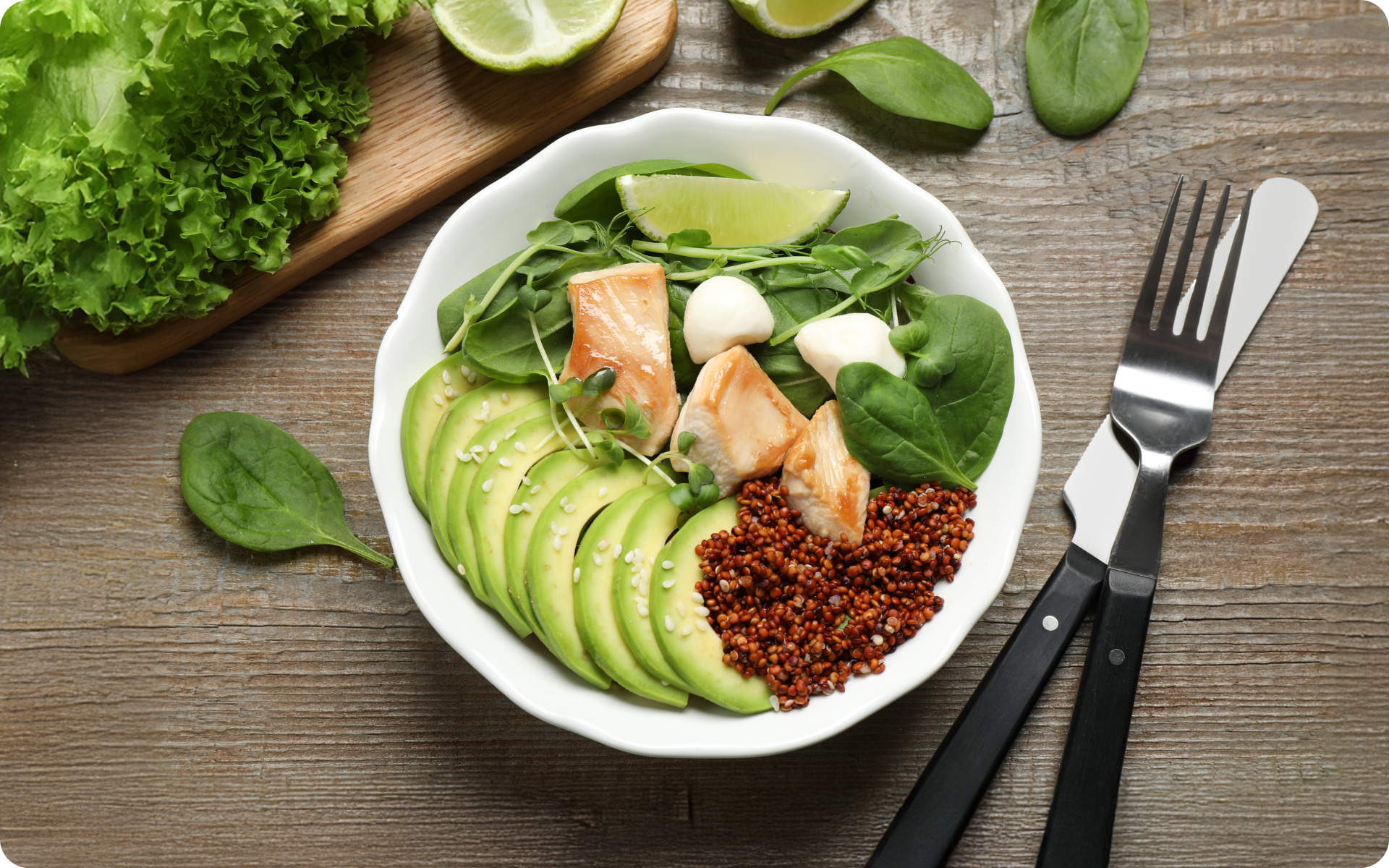The 700-calorie diet is one of those plans that instantly grabs the attention of people who are looking for a rapid solution to weight loss or those who are curious about how it could possibly work. Imagine eating so frugally, but doing it as an adult who may otherwise burn over 2,000 calories daily just to function. It’s extreme, it’s demanding — but it claims quick results. However, behind these promises lie several questions: Is this really the best way to lose weight? How sustainable is it? And what happens to your body when you cut calories to such a low level?
For some, the 700-calorie diet may seem like a last resort—one that offers the hope of fast-tracking weight loss for a specific reason, such as preparing for surgery or addressing urgent obesity-related issues. However, it’s important to understand the risks, potential pitfalls, and what exactly you’re signing up for. Let’s break down the ins and outs of this restrictive diet, from what it entails to whether it truly is a healthy approach.
What Is a 700-Calorie Diet?
The 700-calorie diet is classified as a very low-calorie diet (VLCD), which means it dramatically reduces daily intake to under 800 calories (1). For most people, this is a sharp departure from the typical 1,600-3,000 calorie range that’s required for maintaining weight (2). It’s mainly used in clinical settings for people who need to lose weight rapidly for medical reasons, such as those with severe obesity who are facing surgery or managing critical conditions such as high blood pressure, which would improve with weight loss (3).
This diet is not a free-for-all—it’s tightly structured, and should only be done under the supervision of a healthcare professional. The reason? Consuming so few calories can trigger a host of physiological changes as the body shifts into survival mode. At this level of restriction, every calorie has to count. Meals are meticulously planned to include protein sources such as lean meats or eggs, non-starchy vegetables, and a tiny portion of healthy fats to ensure some nutritional balance.
However, the reality is that a diet like this isn’t meant for everyone:
- It’s Short-Term: Designed for temporary use only, not a long-term lifestyle.
- Not Without Risks: Without professional oversight, it can lead to muscle loss, nutritional deficiencies, severe fatigue, and other dangerous side effects.
- Quick Result-Focused Plan: It isn’t about slow, sustainable weight loss, but about achieving a fast calorie deficit for specific health needs.
While it may sound like a quick fix, it’s important to recognize that cutting calories to such extremes has implications for how your body functions daily.
What Does 700 Calories Look Like?
Living on 700 calories a day requires precise meal planning, as you need to make every single calorie count. Here’s an example of what a day may look like on this plan:
- Breakfast: One boiled egg (78 calories) paired with half a grapefruit (52 calories).
- Lunch: A small salad with mixed greens, cherry tomatoes, and 3 ounces of grilled chicken breast (142 calories).
- Dinner: A small fillet of baked salmon (220 calories) with steamed broccoli (50 calories).
- Snack: A handful of cucumber slices (20 calories).
With such a meal plan, it adds up to around 700 calories—barely enough for the body’s basic functions. This plan focuses heavily on protein to help maintain muscle mass and uses low-calorie, nutrient-dense vegetables to provide fiber and some vitamins. However, the portions are incredibly small, which makes it difficult to feel full.
If you wish to free yourself from all the extra pounds that have been weighing you down for way too long, start using the BetterMe: Health Coaching app and overhaul your entire life!
Tips for Sticking to the Diet
- Plan Ahead: Meal prep is your best friend. Cook meals in advance to avoid the temptation of reaching for high-calorie foods.
- Focus on Hydration: Drinking water can help curb hunger and keep you feeling fuller between meals (4).
- Protein Power: Opt for protein-rich foods to keep you satisfied longer and minimize muscle loss (5).
Even with these strategies, many people find it difficult to maintain this level of restriction. Hunger, low energy, and cravings can make it very difficult to stick with the plan, which is why it’s often only used as a short-term solution.
Challenges of Sticking to 700 Calories
- Constant Hunger: Even with high-protein meals, you’re likely to feel hungry quite often.
- Cravings: With carbs and fats limited, cravings for sugar and comfort foods can become seriously intense.
- Low Energy Levels: Without enough calories, simple tasks can feel exhausting, which can impact your day-to-day productivity.
It’s clear that this diet requires a lot of discipline and mental fortitude, and even then, it can be physically and emotionally draining.
Read more: 7-Day Diet To Lose 10 Pounds: Diving Into Why Rapid Weight Loss Is A Pipe Dream In And Of Itself
How Many Calories Should You Eat a Day?
A typical adult’s caloric needs are determined by several factors, such as age, sex, weight, and physical activity. Here’s a general breakdown (2):
- Women: Require approximately 1,600 to 2,400 calories daily, depending on their age and activity level.
- Men: Usually need between 2,000 and 3,000 calories to maintain their weight.
- Children and Teens: Need anywhere from 1,000 to 2,200 calories or more as they grow.
A 700-calorie diet falls drastically short of these recommendations. Even the most sedentary adults are advised not to drop below 1,200 calories for women and 1,500 calories for men, as going lower than this can slow down your metabolism. A slower metabolism means your body burns fewer calories at rest, which makes it harder to lose weight over time and easier to regain it when the diet ends (6).
Why Does Caloric Balance Matter?
- Sustainable Weight Loss: A caloric deficit of 500-1,000 calories daily leads to a safer, more gradual weight loss of 1-2 pounds per week (7).
- Preserving Muscle Mass: With moderate calorie cuts, you’re equipped to maintain lean body mass while still losing fat.
- Better Energy Levels: Eating enough calories helps sustain energy for daily activities and exercise.
In comparison, a 700-calorie diet doesn’t offer room for this balance, which can lead to faster weight loss, but with more potential downsides.
How Many Carbs Do You Eat on a 700-Calorie Diet?
Carbs are often minimized on very low-calorie diets to make room for more protein as it helps to preserve muscle mass (8). On a 700-calorie diet, you may only consume 20-60 grams of carbohydrates per day, which is significantly less than the average diet that includes 225-325 grams of carbs (9, 10).
Why Such Low Carbs?
- Energy Efficiency: With so few calories, focusing on protein helps maintain muscle, while fats provide longer-lasting energy.
- Stable Blood Sugar: A lower carb intake may help prevent blood sugar spikes and crashes, which may reduce cravings, making it slightly easier to manage hunger (11).
However, the low-carb approach isn’t without its drawbacks:
- Potential Fatigue: Carbs are the body’s preferred source of energy, so cutting them can lead to low energy levels and brain fog.
- Nutrient Gaps: Carbohydrates such as fruits and whole grains also offer important vitamins and minerals, which are difficult to replace on such a restricted diet.
It’s a delicate balance, and many people find that the trade-offs aren’t worth the constant battle against fatigue and cravings.
Is a 700-Calorie Diet Really Effective?
Yes, it can be effective for rapid weight loss, but it certainly isn’t a long-term strategy. When you cut down to merely 700 calories, the calorie deficit is so extreme that your body is forced to burn through its reserves. Initially, this means rapid weight loss, which can be encouraging. But effectiveness isn’t just about what happens on the scale.
- Water Weight Loss: Much of the weight lost in the first week is due to water loss as glycogen stores deplete (12).
- Muscle Breakdown: Without enough protein and calories, the body starts using muscle tissue for fuel, which can slow down metabolism and result in the loss of physical performance over time(12).
- Metabolic Slowdown: Prolonged restriction may signal to the body that it’s in a famine state, causing it to conserve energy and burn fewer calories at rest (13).
It’s important to understand that while a 700-calorie diet may help you achieve your short-term goals, it’s not designed for long-term maintenance. Once you increase your caloric intake again, it’s common that you’ll regain much of the weight.
BetterMe: Health Coaching app helps you achieve your body goals with ease and efficiency by helping to choose proper meal plans and effective workouts. Start using our app and you will see good results in a short time.
How Much Weight Can I Lose Eating 700 Calories a Day?
The potential for weight loss on a 700-calorie diet is substantial, especially initially. Here’s what you can expect (1):
- First Week: Rapid weight loss, often 3-5 pounds, largely due to water loss.
- Following Weeks: Average weight loss can slow to 1-3 pounds per week as your body adapts.
- Over 12 Weeks: Depending on your starting weight and adherence, it’s possible to lose between 20-40 pounds.
However, not all this weight loss is fat—there’s often significant muscle loss too, which can make it difficult to keep the weight off. And as your metabolism adjusts to the lower intake, continuing to lose weight becomes more difficult.
Cautionary Note: Sustaining this diet for more than a few weeks without medical supervision can lead to nutrient deficiencies, extreme fatigue, and a compromised immune system. Please seek advice from a medical professional before proceeding.
How Much Weight Is It Safe to Lose?
Health experts typically recommend a weight loss of 1-2 pounds per week. This is because a moderate calorie deficit allows for steady fat loss while preserving muscle. Gradual weight loss is less likely to disrupt your metabolism and helps establish habits that support long-term success. Here’s why slower is better:
- Maintains Muscle Mass: Muscle burns more calories at rest than fat, so preserving muscle is the key to keeping metabolism strong. Muscle is also important for physical ability and quality of life.
- Reduces Risk of Gallstones: Rapid weight loss increases the likelihood of developing gallstones, a painful side effect (14).
- Sustainable Habits: Slow changes allow your body to adapt and maintain the weight loss over time. They help create routines you can stick to long-term.
Read more: Pros and Cons of Intermittent Fasting: What Does the Science Say?
Why Am I Not Losing Weight on 700 Calories a Day?
It seems counterintuitive, but weight loss can stall, even with an incredibly low intake such as 700 calories. Here’s why:
- Metabolic Slowdown: When you significantly reduce your calorie intake, your body may enter “starvation mode”, slowing down your metabolism to conserve energy. This means your body burns fewer calories, which makes weight loss more difficult (15).
- Muscle Loss: Without enough protein, your body may use muscle for energy, further reducing your resting metabolic rate. Muscle burns more calories than fat, so less muscle means fewer calories burned daily (16).
- Water Retention: Stress from caloric restriction can increase cortisol levels, leading to water retention and bloating, which can mask fat loss on the scale (17).
- Nutrient Imbalance: Deficiencies in key vitamins and minerals can disrupt metabolism and hormone function, which makes weight loss less efficient (18).
Breaking through this plateau may require slightly increasing your calorie intake (with more protein), introducing light resistance training to build muscle, and focusing on stress management to help the body recover. It’s always best to seek professional guidance when dealing with such extreme diets.
A 700-calorie diet can be risky and is generally only safe when followed in the short term under medical supervision. This is because it can lead to nutrient deficiencies, muscle loss, extreme fatigue, and other dangerous side effects. A 700-calorie meal plan may include small portions such as a boiled egg, half a grapefruit, a salad with grilled chicken, a small salmon fillet with steamed vegetables, and cucumber slices as a snack. Yes, a 700-calorie deficit can support steady weight loss if it’s done carefully, helping you lose approximately 1-1.5 pounds per week. This means eating 700 calories fewer than your body burns each day, which isn’t the same as eating only 700 calories.Frequently Asked Questions
Is a 700-calorie diet safe?
What can I eat that is 700 calories?
Is a 700-calorie deficit good?
The Bottom Line
The 700-calorie diet offers a quick route to weight loss, but it comes with serious risks. While it may deliver rapid results, the potential for muscle loss, metabolic slowdown, and nutrient deficiencies makes it unsustainable for most people. Aiming for a gradual reduction of 1-2 pounds per week is generally a safer and more effective approach. If you’re considering such a restrictive diet, always consult a healthcare professional to ensure it’s suitable for your health needs and goals.
DISCLAIMER:
This article is intended for general informational purposes only and does not serve to address individual circumstances. It is not a substitute for professional advice or help and should not be relied on for making any kind of decision-making. Any action taken as a direct or indirect result of the information in this article is entirely at your own risk and is your sole responsibility.
BetterMe, its content staff, and its medical advisors accept no responsibility for inaccuracies, errors, misstatements, inconsistencies, or omissions and specifically disclaim any liability, loss or risk, personal, professional or otherwise, which may be incurred as a consequence, directly or indirectly, of the use and/or application of any content.
You should always seek the advice of your physician or other qualified health provider with any questions you may have regarding a medical condition or your specific situation. Never disregard professional medical advice or delay seeking it because of BetterMe content. If you suspect or think you may have a medical emergency, call your doctor.
SOURCES:
- Weight Maintenance (2006, sciencedirect.com)
- Weight-Loss and Maintenance Strategies (2004, ncbi.nlm.nih.gov)
- Clinical efficacy of a medically supervised outpatient high-protein, low-calorie diet program is equivalent in prediabetic, diabetic and normoglycemic obese patients (2014, pmc.ncbi.nlm.nih.gov)
- Does drinking water before meals really help you lose weight? (2024, health.harvard.edu)
- High-protein snacks to build muscle and keep hunger at bay (2024, health.harvard.edu)
- The truth about metabolism (2024, health.harvard.edu)
- Obesity and healthy weight (n.d., nutrition.org.uk)
- Preserving Healthy Muscle during Weight Loss (2017, sciencedirect.com)
- Low-Carbohydrate Diet (2023, ncbi.nlm.nih.gov)
- Dietary Guidelines for Americans 2020 – 2025 (n.d., healthcare.utah.edu)
- Effect of low carbohydrate diets on insulin resistance and the metabolic syndrome (2021, pmc.ncbi.nlm.nih.gov)
- Physiology, Fasting (2023,ncbi.nlm.nih.gov)
- Effects of Chronic Dieting, Weight Fluctuations (2024, todaysdietician.com)
- Dieting and Gallstones (2008, utica.edu)
- Impact of calorie restriction on energy metabolism in humans (2020, sciencedirect.com)
- The impact and utility of very low-calorie diets: the role of exercise and protein in preserving skeletal muscle mass (2023, pmc.ncbi.nih.gov)
- Low Calorie Dieting Increases Cortisol (2011, pmc.ncbi.nlm,nih.gov)
- Vitamins and Minerals for Energy, Fatigue and Cognition: A Narrative Review of the Biochemical and Clinical Evidence (2020, pmc.ncbi.nlm.nih.gov)













